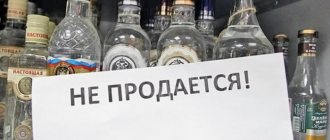"Simply 228"
This is the most basic article on drug trafficking in our Criminal Code. Let's give its wording in full and verbatim.
Article 228 of the Criminal Code of the Russian Federation. Illegal acquisition, storage, transportation, production, processing of narcotic drugs, psychotropic substances and their analogues, as well as illegal acquisition, storage, transportation of plants containing narcotic drugs or psychotropic substances, or their parts containing narcotic drugs or psychotropic substances.
Is there legal drug trafficking?
Usually people for some reason are pretty amused by the fact that there is a “legal trade”, however, it really exists. The procedure for this very legal circulation of narcotic drugs is prescribed both in Russian and international legislation. We won’t dwell on them – we mentioned them in passing, and that’s enough.
Subject of the crime in Article 228
The subject matter provided for in Art. 228 of the Criminal Code of the Russian Federation crimes are drugs (the substances themselves, their analogues, plants containing such substances and their parts). There is a special list of such substances - it is contained in Government regulations and is regularly updated. In addition, legislators are actively working with wording to maximally cover not only existing drugs, but also new (mostly synthetic) substances that are constantly appearing on the market.
The objective side of the crime under Article 228 of the Criminal Code of the Russian Federation
To receive charges under Art. 228 of the Criminal Code of the Russian Federation, it is enough to commit any of the acts listed in the article. This act may be associated with any of the substances classified by law as narcotic and psychotropic, their precursors, as well as plants (and their parts) containing the corresponding substances.
The crime is considered completed (committed) from the moment of committing ANY action listed in the article. In other words, if a person transports drugs but does not manufacture them, this is enough to bring charges under Article 228 of the Criminal Code of the Russian Federation.
Despite the fact that even one action is enough to bring charges, ZNBM.ru strongly advises that the investigation and the court exclude all “extra” compounds at the earliest possible stages - that is, if you only transported (only produced, only stored, etc. ) drugs - it is necessary that the indictment only states what exactly you did. In our experience, excluding unnecessary elements from the wording of the charge (even if, therefore, it does not attempt to “present” them) can significantly reduce the punishment under Article 228.
Amendments to Article 228 Part 3 IN 2021
Many believe that this punishment is too harsh and does not correspond to the goals of rehabilitation and resocialization of a person who is hooked on addiction. In this regard, the partial decriminalization of the “anti-drug” article, or at least its mitigation, has been discussed for several years now. Many are also interested in whether the punishment under Art. 228.1 of the Criminal Code of the Russian Federation in 2021. The sentences for the production, shipment and sale of drugs are more severe than for possession.
8.5. Actively contributing to the disclosure or suppression of crimes related to the illicit trafficking of drugs, psychotropic substances or their analogues means reporting truthful and complete information to law enforcement agencies, personal voluntary participation in operational search and investigative measures to disclose or suppress not only the crime in which the person took part, but also other crimes known to him related to the illicit trafficking of narcotic drugs, psychotropic substances or their analogues (Articles 188, 228 - 234). Therefore, this condition for exemption from the Criminal Code is absent if a person contributes to the disclosure of only the crime in which he participated, keeps silent about other crimes known to him, reports incomplete or knowingly false information, or refuses to participate in measures to disclose or suppress them.
Changes and amendments to article part 2 of the Criminal Code in the year. News on the topic and commentary on the bill on mitigation of punishment under Part 2 of Art. of the Criminal Code of the Russian Federation. In February of this year, a working meeting was held in the State Duma to improve legislation in the field of combating drug trafficking. At this meeting, a bill was presented to amend the Criminal and Criminal Procedure Codes to mitigate the punishment for the acquisition and possession of drugs on a large scale, that is, under Part 2 of Article of the Criminal Code of the Russian Federation. Establish punishment for the acquisition and possession of drugs on a large scale in the form of imprisonment for a term of 2 to 5 years.
The bill is still posted on the government website, but apparently due to an oversight. Changes in the Criminal Code of the Russian Federation and the Criminal Procedure Code of the Russian Federation from March 30, 2021 On March 30, 2021, new editions of the Criminal Code of the Russian Federation and the Criminal Procedure Code of the Russian Federation come into force.
Accordingly, it is necessary to more actively apply mechanisms of legal incentives to such persons to give up drug use in order to timely return drug users to a normal lifestyle. The foregoing fully demonstrates the need to transfer the least dangerous crimes related to the possession of drugs without the purpose of sale to the category of less serious ones.
The average benefit amount will be 10,523 rubles. in 2021, 10,836 rubles. - in 2021 and 11,143 rubles. — in 2021. Legislators also changed the wording of Article 258.1 of the Criminal Code of the Russian Federation, which provides for liability for the illegal extraction and trafficking of especially valuable wild animals and aquatic biological resources.
You can call, tell about the current situation, find out what is threatening, get advice on what to do, what actions to take! Do you need the help of a professional drug lawyer in Moscow and the Moscow region? They also plan to make changes to Part 3 228 of the Criminal Code of the Russian Federation.
Production - large-scale production of psychotropic and narcotic drugs, ready for use, their serial production from plants or chemicals by combining substances that are not prohibited by law, resulting in new substances with a narcotic effect. In this case, ingredients of both natural and synthetic origin can be used. Processing refers to the purification of narcotic substances from foreign impurities, and other actions aimed at improving the quality of prohibited drugs. The main types of processing (as amended by the Federal.
The actions listed in parts 1 – 3 of Article No. 228.1 are taken into account. Organized criminal groups are held accountable for actions committed against minors. Persons who have used their position for criminal purposes are also considered. Conviction is carried out for acts on a large scale.
Determining which category a drug belongs to occurs through a chemical analysis process. Considering the fact that recently more and more new substances are being developed, the legislation simply does not have time to register them all. But their creators will be held liable if testing proves that the resulting product has narcotic effects.
However, there is also some danger in such an initiative - not all criminals, after being released, will be able to immediately fit into the established rhythm of society. It is quite possible that situations may arise where a former prisoner is taken into custody again and an innocent person suffers.
Unauthorized production, acquisition, storage and transportation of these funds are criminally punishable acts: the article applies to cases where large amounts of funds were seized during arrest or during the investigation. The use of psychotropic and narcotic drugs without a doctor’s prescription is also an offense and is punishable by law. This is due to the fact that their uncontrolled use leads to addiction and rapid destruction of health, and then to physical and moral degradation, creating a convenient environment for committing various crimes. For this reason, in order to preserve the health of the population and reduce the number of crimes committed while intoxicated, strict restrictions were introduced at the legislative level in the sphere of circulation of psychotropic and narcotic drugs. A criminal who violates the state ban on drug trafficking encroaches on the health and life of other people, since people addicted to drugs subsequently become unable to give them up and can commit any crime for their sake.
- active assistance to law enforcement agencies in the investigation of a crime, assisting them in exposing persons who have committed or are preparing to commit a crime;
- presence of young children or disabled children;
- the health status of the defendant himself or his dependent relatives;
- positive reviews about the defendant’s personality from neighbors, superiors, work colleagues, etc.
How many people are imprisoned under Article 228 in Russia?
In the comments to the channel we often come across a variety of numbers. Some believe that every second person is in Russian prisons at 228, others say that 60, 70 and even 80% of those convicted. The same is with insulators - readers’ guesses reach 90%.
We decided to find out how many people are under investigation and convicted for crimes related to drug trafficking (Article 228 of the Criminal Code of Russia is responsible for them).
So, what will the Judicial Department of the Supreme Court of the Russian Federation, which is responsible for recording cases by category, tell us? And he will say that as of 2021, in Russia every seventh conviction was made under Article 228.
In 2021 (the latest year for which full statistics are published), 658,300 people were convicted. Of these, all compounds of Article 228 accounted for 13.4%.
However, we are talking about sentences - there are many more prisoners and defendants. There are several reasons for this – more about them below.
Why are there many people convicted under Article 228 in prisons and pre-trial detention centers?
As we have already established, every seventh conviction in Russia is made under Article 228. The Judicial Department likes to point out that many of them are suspended or not related to imprisonment, but this should not reassure the meticulous reader.
How many people are convicted of drugs in Russia (data from the Judicial Department of the RF Armed Forces)
Prisons, colonies and pre-trial detention centers in Russia are indeed overcrowded with people accused of drug-related crimes. In some institutions (some regions) their number exceeds 30% of the institution's capacity. In total, a quarter of all convicts in Russia are imprisoned in all units 228.
In strict regimes, the number of 228 may exceed the number of those convicted of intentional murder. There are quite logical explanations for this.
How many women are in prison for drugs?
The most deplorable situation is in women's colonies, where the percentage of people convicted of drug offenses exceeds 40%. Today, this is the most “female” article of the Criminal Code of the Russian Federation.
Article 228 1 part 4
Lawyer's response:
Hello, miracles happen, everything can happen, but the article itself is very difficult, part 4, even more so, depending on which letter of part 4 you fall under, taking into account mitigating events, good traits, family, children, good service in the army, probable retraining etc., a lot depends on a smart lawyer, on a judge _____________________________________________
Lawyer's response:
Hello. The small sentence under this article is 10 years. In this case, the logic of your spouse’s lawyer is clear. But if you have sufficient grounds to challenge Part 4, then filing an appeal would be appropriate. ________________________________________
How they sit under Article 228 of the Criminal Code of the Russian Federation
You can often hear stories that those convicted under 228 are not liked in prisons or even let go. These rumors require significant clarification.
It is worth immediately paying attention to the fact that convicts, whose number in the institution reaches 40%, are, in principle, not so easy to offend. There are just a lot of them - the 228th are becoming a significant force.
In addition, it is worth distinguishing between ordinary drug users, distributors, drug dealers, pawnbrokers, and so on. It is also important to take into account that there are a lot of drug addicts in Russian prisons, including those convicted under other articles of the Criminal Code. It is often even easier to obtain drugs in penal institutions than in the wild.
Will there be problems in prison with 228?
So, the majority of 228s will not have problems either in the pre-trial detention center or in the zone. If, of course, you follow the concepts and ordinary rules of human society. Traditionally, things have been hard for those who have committed crimes against minors. In addition, “pre-trial defendants”—convicts who made a deal with the investigation—are not honored.
Some institutions continue to treat drug distributors unevenly – the so-called. “hucksters”, in some pre-trial detention centers they are forced to do unpleasant work, they are appointed to “watch the slippers” and so on. But, on the one hand, this practice is dying, and on the other hand, it mainly grows “from a young age”, that is, it is not relevant in an “adult” cell.
It is also important to understand that the cells in Russian pre-trial detention centers are becoming less and less populated, and operational workers are still trying to select those under investigation according to the articles. Of course, in a cell where five out of six prisoners are being held for drugs, they will not have any problems.
Unless, of course, these same problems were ordered by the investigator. However, even in this case, it is easier to go to the press hut than to get into trouble in your cell. Answering the question about how they sit under Article 228 of the Criminal Code of the Russian Federation, we can say the following.
In general, those accused and convicted under Article 228 of the Criminal Code of the Russian Federation are serving the same sentence as everyone else.
Article 228 of the Criminal Code of the Russian Federation - structure
To make it easier to read the text of the article of the law and navigate it, you should structure its content. Thus, the Criminal Code of the Russian Federation contains Article 228, which consists of the following:
- Article 228 Part 1 – significant size. Illegal activities in relation to narcotic substances and dope are listed, and then the measures and degree of responsibility are indicated.
- Article 228 Part 2 of the Criminal Code of the Russian Federation - large size. Punishment is provided for illegal acts specified in Part 1. The size is already assessed as large.
- Article 228 Part 3 of the Criminal Code of the Russian Federation - especially large size. Punishment for crimes specified in Part 1, committed by persons in sufficiently large quantities.
- Notes (3 points).
Is it possible to be released on parole under Art. 228 of the Criminal Code of the Russian Federation
Formally, questions about parole and the replacement of the unserved part of the sentence with a more lenient type (MLB) are not related to the crime. The judge assesses the possibility of release or commutation of punishment based on how the person served his sentence - whether he took sufficient measures to correct himself, and whether he needs imprisonment for a full return to society.
However, most crimes under Article 228 and its “primaries” are considered grave (with the exception of Part 1 of Article 228 of the Criminal Code of the Russian Federation) and Articles 79-80 of the Criminal Code of the Russian Federation are applied to citizens convicted under them with reservations.
We immediately confirm that parole under Article 228 is possible, it is not prohibited by law. Nor is it prohibited for a positively characterized convict to replace the unserved part of his sentence with a milder form - for example, transfer him to a colony-settlement (quite likely) or to correctional labor (extremely rare).
When is parole possible under Art. 228 of the Criminal Code of the Russian Federation
Like the parole of any other convicts, parole of a convict under Article 228 is possible after he has actually served the legally prescribed part of the term prescribed by the court verdict. The Criminal Code (clause “d” of part 3 of article 79 of the Criminal Code of the Russian Federation) states:
“Parole can be applied only after the convicted person has actually served at least three quarters of the sentence imposed for grave and especially grave crimes related to the illicit trafficking of narcotic drugs, psychotropic substances and their precursors.”
Art. 79 of the Criminal Code of the Russian Federation
The court's decision is conditional
According to the conclusion of the commission of experts of the outpatient forensic psychiatric examination, Chitakin D.I. does not suffer from a chronic psychiatric disorder, dementia, or other painful mental condition. During the period relating to the act of which he is accused, he did not show signs of any temporary mental disorder or other painful mental state, his actions were purposeful in nature, were not accompanied by deceptions of perception, a painful disturbance of consciousness, or a delusional interpretation of the events taking place, memories of a legally significant period have been preserved. In the application of any medical measures, including compulsory ones, Chitakin D.I. does not need. Currently, there are no clinical signs of drug addiction or alcoholism found in him. As someone who does not suffer from drug addiction or alcoholism, Chitakin D.I. does not require treatment for drug addiction and alcoholism, however, he is recommended to undergo medical and social rehabilitation for repeated use of cannabinoids
The court, having checked the materials of the criminal case, finds the defendant D.I. Chitakin guilty. fully proven by the evidence available in the case, his actions are correctly qualified under Part 2 of Art. 228 of the Criminal Code of the Russian Federation, since he illegally possessed the narcotic substance hashish weighing 29.6 grams, in large quantities, as evidenced by the weight of the drug seized from him. At the same time, the court excludes from the defendant’s charge the element of illegal acquisition of a narcotic substance, since by virtue of Art. 73 of the Criminal Code of the Russian Federation, the circumstances of the acquisition of the drug are subject to proof, and since the charge against Chitakin D.I. is not actually formulated in this part, then it is impossible to condemn him on this basis.
Article 228 of the Criminal Code of the Russian Federation: changes in sentence terms in 2018
The terms of punishment under Art. 228 of the Criminal Code of the Russian Federation is divided into three main points according to the severity of the offense, and only the judge determines which of them will be used in each specific situation.
- If any activity with drugs of synthetic and plant origin is detected, the accused faces a fine of up to 40 thousand rubles. The maximum penalty is imprisonment for up to 3 years.
- In a situation where a drug transaction is considered large, the penalties become more severe. The culprit will be imprisoned for a term of 3 to 10 years and will be fined up to 500 thousand rubles.
- A particularly large transaction with narcotic substances is punishable by a fine of up to half a million rubles and a prison term of up to 10-15 years.
Important!
In addition to the size of the transaction Art. 228 Part 1 of the Criminal Code of the Russian Federation takes into account other nuances when determining the term that affect the severity of the punishment.










